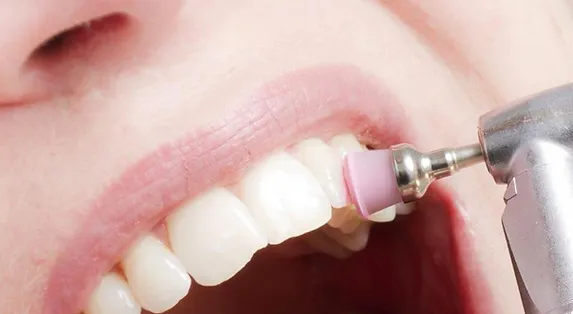Scaling is a dental procedure that involves the removal of plaque and tartar (also known as calculus) from the surfaces of the teeth, both above and below the gumline. Plaque is a soft, sticky film that forms on the teeth and contains bacteria. If not removed regularly through proper oral hygiene practices, plaque can harden into tartar, which cannot be removed by brushing and flossing alone. Scaling is vital to prevent gum disease, as tartar buildup can lead to inflammation of the gums (gingivitis) and, if left untreated, can progress to more severe gum disease (periodontitis).
After scaling, the teeth are polished to remove any remaining stains and surface imperfections, giving the teeth a smooth and shiny appearance. Polishing is typically performed using a dental handpiece with a soft rubber cup or a brush attachment, along with a special polishing paste. Polishing not only improves the teeth’s appearance but also helps to prevent future plaque and stain accumulation, making it easier to maintain good oral hygiene.
The frequency of scaling and polishing varies depending on the individual’s oral health needs. For most people, it is recommended to have these treatments performed every six months during routine dental check-ups and cleanings. However, individuals with specific oral health concerns, such as gum disease or a history of heavy plaque buildup, may require more frequent scaling and polishing sessions.
By undergoing regular scaling and polishing sessions as part of routine dental check-ups, individuals can enjoy a healthy, bright smile and contribute to their long-term oral health. If you are due for a dental check-up or have concerns about your oral health, schedule an appointment with our professional dentist or dental hygienist to discuss the benefits of scaling and polishing for your specific needs.


